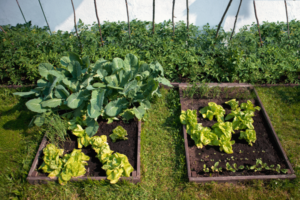If you’re looking for a fun and educational activity to do with your kids, gardening is a great option! Not only will they learn about nature and where food comes from, but they’ll also get some fresh air and exercise. Gardening can teach kids important life skills like responsibility and patience, and it’s also a great sensory activity.
Here are a few tips to make gardening with kids successful:
1. Choose kid-friendly plants. Some good options include sunflowers, pumpkins, and berries.
2. Create a garden space that’s accessible to kids. This might mean using raised beds or planters instead of traditional gardens.
3. involve kids in every step of the gardening process, from planting seeds to harvesting vegetables.

The benefits of gardening with kids.
When kids grow their own food, they develop a greater appreciation for where their food comes from and how it is grown. They learn about the natural world around them and the importance of taking care of the environment. Kids also become more aware of the seasons and the cycles of life. As they watch their plants grow from seedlings to full-grown plants, they learn about patience and responsibility.
Gardening is a great way to get kids outside and active.
Gardening is a great way to get kids outside and active. Fresh air and sunshine are good for body and mind, and gardening is a fun way to get some exercise. Gardening also helps kids develop fine motor skills as they dig, plant, water, and harvest their crops.
Gardening can teach kids about responsibility and patience.
Gardening requires planning, preparation, and care – all qualities that children can learn through their experience in the garden. By taking care of their plants, children learn to be responsible for something other than themselves. They also learn that good things take time; they cannot simply plant a seed one day and expect it to bear fruit the next day. Gardening teaches patience as well as perseverance – two important character traits that will benefit children throughout their lives.
Gardening is an important sensory activity
Gardening engages all the senses – sight, smell, touch, taste, and sound. Kids can see the vibrant colors of flowers, smell herbs as they brush past them, feel the dirt on their hands after a hard day’s work in the garden, taste fresh fruits and vegetables straight off the vine (or out of the ground), and listen to bees buzzing around pollinating flowers. This multi-sensory experience is not only enjoyable but also beneficial for children’s cognitive development.
Tips for gardening with kids.
Some great plants to start with are sunflowers, pumpkins, squash, and beans. These plants are easy to grow and maintain, and they’re also fun for kids to watch grow.
Create a garden space that’s accessible to kids.
Make sure that your garden space is safe for kids by using raised beds or containers. This will help keep them from accidentally stepping on or damaging plants.
Involve kids in every step of the gardening process.
From planting the seeds to harvesting the fruits and vegetables, involve your kids in every step of the gardening process. This will help them learn about each part of plant growth and instill a sense of responsibility in them.

What vegetables can be grown when doing activities with the children
One of the best vegetables to grow with kids is the humble potato. Potatoes are easy to grow, and they’re a lot of fun for kids to harvest. You can even let them help with the planting and watering. Another good vegetable to grow with kids is corn. Corn is also easy to grow, and it’s a lot of fun for kids to watch it grow tall. And, of course, kids love to eat corn on the cob!
I did it with my childhood and it was definitely a lot of fun

Other good vegetables to grow with kids include beans, peas, and carrots. These vegetables are all relatively easy to grow, and they’re all great for teaching kids about healthy eating. Beans and peas are also good sources of protein, which is important for growing bodies. Carrots are a great source of vitamins and minerals, and they’re just plain delicious!
Conclusion
There are many benefits to gardening with kids, including teaching them about nature and where food comes from, getting them outside and active, and teaching them responsibility and patience. By involving kids in every step of the gardening process, you can create a fun and educational experience for everyone involved.

